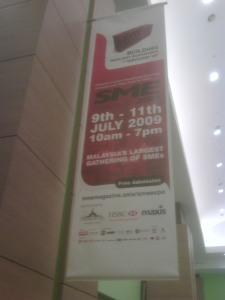
We’ve heard time and time again that we need political stability. We’ve been told, via government controlled media, through the various government functions and other means of propaganda, that without political stability we are doomed as a country. The message is clear: keep the ruling party in power, or suffer as a nation.
Some politicians and academicians continue to argue that our prosperity today is the result of decades of shepherding by the present government. That investors continue to pour billions of dollars into our economies because we have the same government since independence. That we have the opportunity to develop real infrastructure and build a sustainable, modern economic framework as we do not need to deal with shifting preferences and policies. That our fragile inter-racial community requires a strong political authority to keep us in harmony.
As business people, we generally like the idea of stability. Because that means we can continue pulling in weighs, counting on favours, and operate in an environment we are familiar with.
While I agree that political stability in any country is important, I do not share the idea that political stability equals continuous political dominance by the same party. I am not calling for a change of government - far from it. But the present government need to ensure that dissent and popular opinion are taken into consideration in governance. More importantly, we need to build into our system a clear separation of power between the executive, the judiciary and the legislative, as a safeguard against excesses by the present and future government of the day. We need to favour strong institutional safeguards versus whims and fancies by politicians, no matter how well meaning they may be.
Compare us to the US, the world’s wealthiest and most powerful country, or to Germany, France, the UK and even Italy. You will find that governments change every few years. As are economic policies. Yet, the Americans and Europeans have become so used to these changes, they have developed an instinct so sharp, they could instinctively change their business game plan according to the way the wind is blowing. Businesses are rarely bankrupted because of shifts of policies and political affiliations. Warts and all, these countries have something we need to emulate: independent legal and legislative institutions as safeguards to drastic changes that could rock the boat. And that, is the ultimate stabilising factors for businesses in those countries.
We have become so dependent on the idea that we have the same government and policies in place that as globalisation continue to hit us, we find ourselves in shock when operating in countries that have different systems and in many way, more democratic, than ours. We find their system to be lacking, that we cannot get things done the same way we have been at home, and that there is little help to be expected from the government. A business culture shock, in short.
We have been boasting of the few companies that have succeeded in expanding our reach beyond our own shores. Yet, we have failed to see that most of these are government-back companies, where a lot of political arm-twisting and horse-trading were done to ensure these companies succeed overseas. And the few that succeeded on their own, find that operating in more developed countries to be too challenging, and are generally less profitable than at home.
Having the same party in power, with the right check and balance is fine by me. But unless we are able to better institutionalise these, in the long run, these same political stability that has brought us to where we are today, will take us back to where we were before.
---------
This article appeared in the November 2009 edition of SME Magazine . Get a copy of the SME Magazine at your nearest bookstore!















